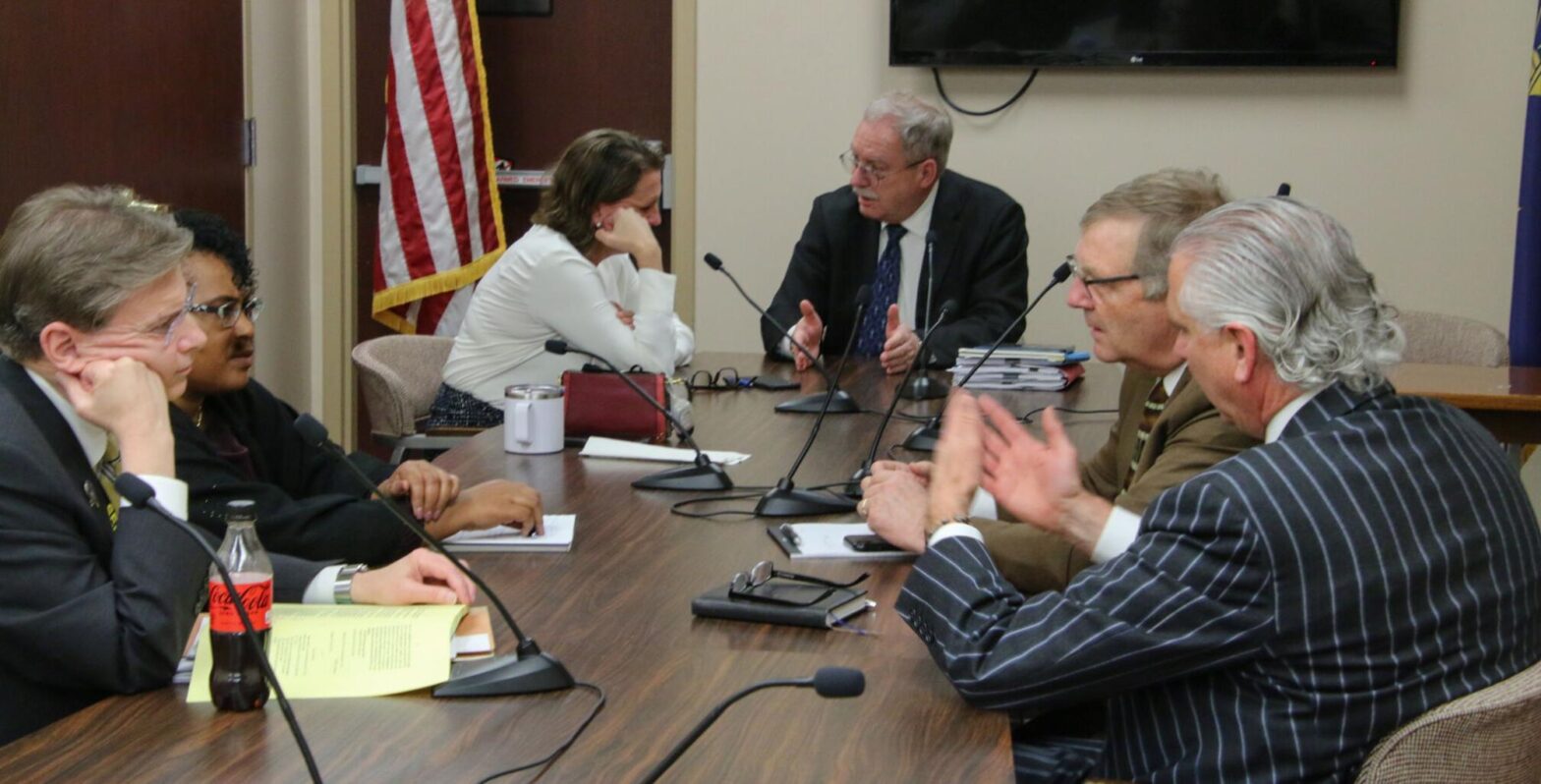
As the General Assembly reaches the final week of the 2022 session, legislators are trying to finalize bills in conference committees.
These committees, which are intended to iron out differences between the Senate-passed and House-passed versions of bills, are legislators’ last chance to reach a compromise that will allow a bill to pass in both chambers.
This concept often manifests itself as a House bill being stripped of major or minor provisions by Senate amendments or vice versa.
Conference committees initially have two Republican and two Democrat members, but the majority party of the chambers can replace opposing members with legislators from their own party to ensure a desired outcome. For a bill under review in a conference committee to become law, it needs a signature from all four members, otherwise known as unanimous consent.
If a bill passes through that phase, it must next travel through a rules committee (both chambers have their own version of this) before making it to the Senate and House chambers for final passage. Because legislative leaders are often members of the rules committees, they get a chance to review the revised bills before they enter the chamber floors for final presentation.
Given the number of steps involved in the process, the fate of some bills will be decided in a buzzer-beating fashion. Here is a highlight reel of some of the key bills that are being discussed this week.
House Bill 1002
Disagreement on this bill is not rooted only along party lines but is rather a confrontation between senators and representatives.
House Bill 1002 passed in the Senate last week. It was initially written to authorize $1.3 billion in tax cuts, but some of those cuts were weakened by a Senate amendment.
Under the bill, Hoosiers who don’t make enough to file for taxes can still get a tax refund. Proponents of the bill say even though some citizens with low incomes don’t file taxes, they still pay sales tax, which entitles them to returns.
Sen. Timothy Lanane, D-Anderson, suggested waiting until the House makes next year’s budget to make any major decisions on taxation, or using excess funding to help with the current state pension funds or taxation on gas.
“These are highly volatile times,” Lanane said. “I don’t think we’ve seen such volatile times in the world since World War II.”
While a lowered gas tax is unlikely to be implemented, Lanane and others agreed it was one of the most direct ways to put money back into the pockets of Hoosiers. The tax rate for gasoline is 32 cents per gallon, or $4.80 for a gas tank holding 15 gallons, for example. With the added pressure of rising gas prices in the state, this is no doubt a concern for many.
The bill also contains a provision to lower business personal property tax, an annual payment Indiana businesses must make as part of owning equipment needed for jobs. This can include anything from machinery to office computers and furniture. This revenue is then used within counties to fund resources such as schools, jails and police departments. No exact number was cited for the new lower tax rates.
No final decisions were made on the bill.
Senate Bill 209
The bill is currently about drug policy, but language from House Bill 1077 will be added to it. This is permissible under the law since both bills deal with criminal law.
If passed through the conference committee later this week, the bill would repeal the requirement that Hoosiers obtain a permit to carry a handgun.
Senate Bill 83
HB 1130, authored by Rep. Timothy O’Brien, R- Evansville, already passed in the Senate and House and went to Gov. Eric Holcomb on Friday. The bill “requires a governing body of a school corporation to allow each member of the public attending a meeting the opportunity to provide oral public comment.”
SB 83, authored by Sen. Jean Leising, R-Oldenburg, adds charter schools and stipulates that public comment comes before the governing body’s discussion.
“In regards to oral public comment I wanted to make sure that individuals that were speaking at a school board meeting under the rules of that particular school board, that the comment that they would make would occur before the board would take final action on whatever subject they were discussing,” said Leising.
“It would be like us having a committee meeting and we’d say, ‘We are gonna let you talk, J.D., but not until after we vote’’—it just didn’t seem right, so that’s why I put that in there.”
The conference committee did not move past preliminary discussion Monday.
Isaac Gleitz is a reporter for TheStatehouseFile.com, a news website powered by Franklin College journalism students. Maddie Alexander and Ari Lovitt also contributed to this report.